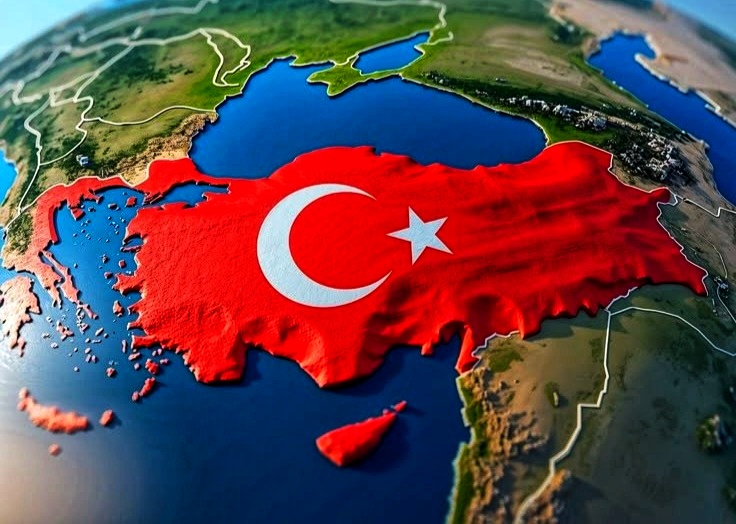Categories
The latest content
-

Customs Clearance & Import Regulations for Bulk Iranian Pinto Beans in EU, Middle East & Africa
..
-

Quality Control & Laboratory Testing Standards for Iranian Pinto Beans
..
-

Logistics & Shipping Solutions for Bulk Iranian Pinto Bean Exports
..
-

Minimum Order Quantity (MOQ) & Bulk Pricing for Iranian Pinto Bean Buyers
..

Tags
Iranian Golden Raisin Wholesale Price in Turkey: Trends and Market Insights

Iranian golden raisins, known for their naturally sweet flavor, bright golden color, and excellent shelf life, are one of the most in-demand dried fruits in international markets. Among Iran’s top agricultural exports, golden raisins hold a prominent position due to their quality, versatility, and consistent supply.
Turkey, a major regional player in the dried fruit industry, serves both as a consumer and a re-exporter of raisins. In recent years, the demand for Iranian golden raisins in Turkey has shown noticeable fluctuations due to various economic, political, and trade-related factors. Here’s a comprehensive look at the wholesale pricing of Iranian golden raisins in Turkey and the key trends shaping this market.
1. Wholesale Price Trends of Iranian Golden Raisins in Turkey
The wholesale price of Iranian golden raisins in Turkey typically ranges between $2,000 to $2,200 per metric ton, depending on:
• Grade and size (Jumbo, Medium, Small)
• Color consistency
• Moisture content
• Presence of stems or foreign matter
• Packaging type (bulk in 10-12.5kg cartons or retail packaging)
While Iran remains a key supplier, prices are influenced by seasonal harvest volumes, transportation costs, and currency fluctuations between the Turkish Lira (TRY), Iranian Rial (IRR), and US Dollar (USD).
In general:
• Peak demand seasons (such as before Ramadan or during export festivals in Turkey) push prices higher.
• Low-yield harvests due to droughts in Iran can reduce supply and drive up wholesale costs.
• Favorable exchange rates may help Turkish importers negotiate lower CIF prices from Iranian exporters.
2. Turkey’s Role as Both Importer and Producer
Turkey itself is a leading global producer of raisins—especially sultana raisins—from regions like Manisa. However, Iranian golden raisins differ in both production method and market positioning. While Turkish sultanas are typically sun-dried and darker in color, Iranian golden raisins are oven-dried using sulfur fumigation, giving them a more appealing golden hue that is especially popular in:
• Bakeries
• Confectionery and snack manufacturers
• Wholesale and retail dry fruit markets
Due to this product differentiation, Turkish buyers actively source golden raisins from Iran to complement their local production and meet varied customer demands.
3. Market Demand in Turkey
The demand for golden raisins in Turkey is driven by:
• Domestic consumption: Health-conscious consumers, vegan diets, and the traditional use of raisins in Turkish desserts and meals support consistent demand.
• Re-export opportunities: Many Turkish wholesalers buy Iranian golden raisins, repackage them under Turkish brands, and re-export them to the EU, Middle East, and CIS countries.
This makes Turkey not just a market, but a strategic transit hub for Iranian dried fruits, including golden raisins.
4. Trade and Logistics Considerations
Importing Iranian golden raisins into Turkey requires:
• Compliance with Turkish Food Safety Regulations
• Certified phytosanitary documents and certificates of origin
• Proper labeling (especially for bulk or retail packaging)
In terms of logistics, land transportation via Bazargan border or Razi-Kapikoy border is the most common route for raisin trade. Transport times are relatively short (3–7 days), making Iran a logistically ideal source.
However, importers must stay informed about:
• Border restrictions or delays due to political tension
• Tariff changes or customs inspections
• Currency exchange rate volatility
5. Market Challenges and Opportunities
Challenges:
• Political relations between Iran and Turkey can impact customs procedures.
• Turkish raisin exporters may sometimes lobby for protective measures to limit competition.
• Quality inconsistency among Iranian suppliers can affect reputation if not managed properly.
Opportunities:
• Rising awareness of natural sweeteners and healthy snacks boosts demand.
• Growing food manufacturing industry in Turkey seeks stable suppliers of golden raisins.
• Turkey’s access to EU and Middle Eastern markets offers potential for partnership and expansion.
Conclusion
The Turkish wholesale market for Iranian golden raisins presents a promising opportunity for exporters who can deliver consistent quality, competitive pricing, and compliance with regulations. With Turkey’s unique position as both a consumer and re-exporter, building strong B2B relationships with reliable Turkish buyers is essential.
At Tamila Agrifood Company, we specialize in the bulk export of premium Iranian golden raisins, sourced from top farms in Malayer, Takestan, and Bonab. Our raisins are carefully sorted, cleaned, fumigated, and packaged to meet international standards, ensuring freshness and long shelf life.
Looking to enter or expand in the Turkish market? Contact us today to receive our latest wholesale price list, packaging options, and shipping schedules.



